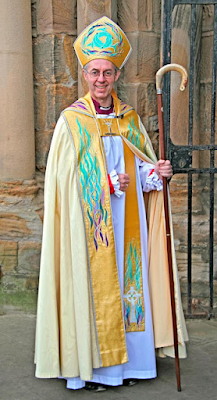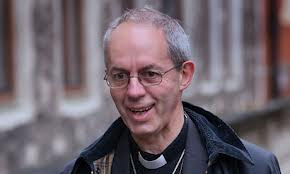Bruce G. Charlton's Blog, page 44
November 15, 2024
I'm sorry, Greg, I'm afraid I can't do that." The totalitarian "internet of things" here-and-now, and going-ahead, regardless...
Specifically, it is about the data that the car collects from the vehicle, the driver, and what the driver does in and with the vehicle - including reading and recording his mobile phone. This information is used to enforce certain styles and practices of driving.
If certain things happen; the car will compel you to leave the road, stop and switch off the engine. If the computer doesn't want you to do something, the car won't do it.
The logged information is also shared with Ford, law enforcement, and anyone else that the company deems to be a responsible authority (plus, conditions of use are explicitly changeable in an open-ended way, without obligation to inform the owner).
Your car can (and, soon, presumably will) report you for what it regards as any kind of traffic, or other, offences; and provides "the authorities" with the necessary "objective" information to prove your guilt.
All of which you have "agreed to" in advance by consenting to the terms of service. Condemned by your own will.
(The demons insist on it!)
The whole video is relevant, but the main information comes from 4:40.
This video made quite an impact on me; because it is representative of the top-down, totalitarian agenda of omni-surveillance and micro control.
It is not something that might happen, "the internet of things" is here and it is now, it is the society we live-in; and - although nobody is asking for this stuff - people are nonetheless paying big money to purchase technology with these features.
You can't get the latest tech without the totalitarian terms of service. And people really want the tech - or else get it forced-upon them by regulations.
As far as I can see, there is only one thing that stands between The West and a society of totalitarian Ahrimanic evil; and that is societal collapse.
In other words; so long as The System remains, it will be implementing omni-surveillance and total control - to the best of its ability...
But that ability is declining, because The West has purposive self-destruction baked-in; and will sooner or later collapse. Already The System cannot actually implement its own plans (as was evident through 2020).
There are many, many factors that guarantee that soon The System will enter a positive-feedback failure; when failure in sub-systems will compound, accelerate - and the whole thing will implode (with or without external intervention on top of that).
(Also - because The System is destroying itself; the later the collapse happens, the more complete it will be.)
I find it chilling to recognize (yet again!) that we are ruled by an obviously evil-serving ruling-managerial class on the one side - who are determined to impose a materialist nightmare on the masses (and themselves!); and with a short-termist, passively-servile, novelty-and-convenience-addicted mass population on the other - who see no further than to get increments of status, comfort and fun.
And that's it! Because the "public morality" of the West is a tissue of (thinly-) disguised-wickedness. And those who oppose the officially-leftist Litmus Test ethic - are merely proposing a more efficiently hedonic System, a more nationally-functional totalitarianism.
As I said: it's a race between totalitarianism and collapse - will the one happen before the other supervenes?
Things are much worse than (almost-) everybody thinks they are!
What really dismays me is not so much that the die is cast - and there is nothing significant that you or I can materially do to stop and reverse this manic societal self-destructiveness... Because it is rooted in an overwhelming majority a-theistic nihilism; is, therefore, ultimately desired.
What dismays me is the attitude. The mixture of denial and indifference. The dumb "farmyard ethic" of thinking that prevails. The bland-nice hand-wringing - the attempts to defeat totalitarianism by more regulation, more layers of bureaucracy. The grasping at straws of assuming somebody or another in the leadership class will save us from abuses - and that we can select these goodies through approved mechanisms such as voting, "direct action", pressure groups, whatever.
All this is avoiding the essential.
Spiritually we can and must understand - make explicitly conscious - what is happening and that it is evil; and instead of inviting evil into our hearts - inwardly reject (i.e. repent) the evil totalitarianism embodies.
People must stop being stupid, lazy, and eagerly-distracted. Everyone has the God-given capability to think sufficiently to choose salvation and reject damnation in whatever situation he finds himself - and everyone is responsible for his own thinking.
Habits and Love - in relation to Christian life and the churches
We cannot develop a habit of "following Jesus", any more than I could develop a habit of loving my wife/ kids/ siblings. Insofar as it is a habit, it isn't love.
This is because the best analogy/ metaphor for the Christian life (the best, because literally true); is that of family and love.
Family and love are primary - anything else (including habit) is secondary.
Habit is indeed an aspect of System, and there are various aspects of System when it comes to family: one habit is rituals.
(The relevant analogy here is with church rituals - gathering, prayer, sacraments etc.)
Ritual can certainly have a valuable role in sustaining family love. For example taking meals together, going for walks, family holidays, and celebrating festivals such as Christmas. Such habits can be helpful in service to family love.
But these rituals are just a potential basis for love, each particular ritual is inessential - and can indeed be counter-productive. Thus; it is vital to subordinate the ritual to the love - ritual must serve love.
So that Christmas rituals (cards, presents, the meal etc.) must Not (as happens all too often!) become so complicated, rigorous, effortful; that they lead to argument, accusations, resentment...
The ritual has become counter-productive; the attempt to develop a habit of family love has led to its erosion.
This happens with churches - and indeed with any kind of organization that uses System to pursue higher goals. For instance, when the correct conduct of ritual becomes the primary mode of evaluation of the higher goal, pursuit of that higher goal becomes impaired and may be prevented.
As when the "objective" behaviour of a church ritual dominates Christian evaluations; meanwhile Christian motivation (being subjective, hidden) is in practice ignored (or mere "lip service" paid).
To clarify the metaphor: ritual is an aspect of System - and churches develop Systems that are intended (initially) to serve and sustain the Christian life of love: the aim of following Jesus Christ to resurrected eternal Heavenly life...
Church Systems then try to develop "good habits"; but the tendency is for habits to become primary - and this usually whether their in-practice effect on love is helpful, or an obstacle - much like those overcomplicated and intrusive arrangements on Christmas Day actually lead to the opposite of what is hoped-for and intended.
The fact is that habits in particular, and System in general, are just means to an end; and that end must come first.
And unless the end of Christian life is made explicit and distinguished from the habit/ System - then it will get squeezed-out; and "Christian" churches will become (have, mostly, already-become) hostile to Christianity.
November 14, 2024
"Contacts" seem to be the potential basis of experiential understanding; as well as participation in the world of spirit
For the past couple of years I have been reading considerably about what Dion Fortune and Gareth Knight (and other ritual magicians of their kind) call "contacts" - or sometimes "Masters". The experience is of individual communication, or sharing of consciousness, with a spiritual being.
The phenomenon seems various in its details, and may occur in a full trance (i.e. when the human becomes unconscious, and speaks or writes without awareness of what is being communicated). Or it may happen in more alert trance states, with awareness of what is going-on. This is apparently broadly the same as "channelling" (i.e. what is channelled, is "a contact").
And contacts seem to underlie, and blend-with by degrees, much commoner and more normal phenomena such as an intense fascination, empathy, communion with some not-present personage; who might be alive or dead, real-life or fictional.
Contact may be sensory (in the form of spoken words or conversation (clairaudience), of visual (clairvoyance - perhaps of visions, symbols, written words); or non-sensory - as what I call "direct knowing".
What seems to be the essential common factor is experienced person-to-person (or person-to-being) contact.
Having read quite widely on this subject, it has become clear that (contrary to common claims, and despite that contacts are often sought purposively as a path to knowledge and guidance) such contacts are not necessarily, indeed only seldom, the basis for accurate or valid information.
This is obvious from the apparent wrongness of much specific (and indeed abstract and generalized) information of this kind; but it must be true from the wide range of contradictory information cited between different (but apparently honest and competent) people; and the same person at different times.
So I have concluded that contacts ought Not to be regarded as a pathway to factual or conceptual knowledge or true guidance.
On the other hand; I have concluded that experience of contacts are not only of potentially primary personal significance; but are probably necessary to the development of true knowledge.
In other words, unless we experience a phenomenon that could be characterized as a contact, we shall never really understand anything.
I concluded this from examining my own work in science and literature, as well as theology, philosophy, and mystical religious experience. Even from when I was an atheist - from more than a decade before I was a theist, or a Christian; I never really understood the meanings of things until I had had this kind of contact experience.
For instance, if I was working on theoretical science; it was all just a matter of "comparing models" - an activity that had no end, and brought no sense of validity - until I had reached an empathic contact with those scientists (living or dead) whose work I was critiquing or using; and the same applied when I had developed a theory that I regarded as valid.
Truth needed to be "checked" by a very inner process, much as I later called heart-thinking; and until a proposition had passed this "test" I was never confident of it.
True knowing needs to be known in the heart, and no amount of head-knowing (logic and "facts") can replace this requirement.
Something closely analogous seems to be at work when I am trying to understand a writer. Unless and until I can attain an inward sense of contact and communion with that person; then I never really feel I know what they are saying.
For instance; it took me about a decade before I "got" Owen Barfield, and felt that I really understood what he was thinking and asserting - and this understanding came as a consequence of getting onto his wavelength by a kind of sympathetic resonance, by thinking "with" him as I read his words or contemplated his writings.
Much the same applied with William Arkle; I had to immerse into his writings for some years before, quite suddenly, I "contacted" his spirit and had the basis for understanding.
But with other authors - such as ST Coleridge - I have never attained this sense of contact, therefore I have never (so far) been confident of understanding him: it is all second-hand, hearsay, "models" of what he was doing.
It is certainly Not the case that contact leads to correct understanding. Contact with Barfield and Arkle was just the basis for understanding them. I needed to study, read, re-read, and think hard.
So having experienced "contact" should Not be used as a "proof" that one's understanding is correct.
But without that contact, there never would have been genuine understanding.
Furthermore, once one has attained contact, and followed it with serious study; one can recognize when others have not attained contact; and are merely parroting and playing-with second-hand summaries and models.
Contact therefore seems to be necessary but not sufficient to knowing.
Contact is also perhaps one of the commonest and most readily available modes of direct spiritual experience: a kind-of evidence of the reality of the spirit world.
And this is just how things would be expected, in an animated, living reality - in this created universe ultimately composed of Beings in relationships.
In sum; I conclude that he ways that contacts are usually regarded, seem to be mistaken. It is usually an error to seek contacts as a source of factual information.
However, contacts - properly regarded - can be an experience of the living world of spirits, an active participation a world of conscious Beings: recognition of a relational world, in which we are never alone.
And a way of inhabiting a world where we can truly understand purposes and meanings - at least to the extent of our individual cognitive capacities, biases, defects and particular perspectives.
All this depends on our regarding it as metaphysically possible - that is, our fundamental assumptions need to allow for such potential: we need to realize that this fits how reality is structured and operates.
November 13, 2024
Political optimism is an Antichrist phenomenon
Just a reminder, eight years on - referencing the current environment of optimism among the self-styled "based" online - that we live in a totalitarian civilization; and that to desire for its revitalization by the results of an election is the kind of sin implied by the Antichrist phenomenon - to place one's hope in one who is not Christ, but in important and fundamental respects - a this-worldly net-opposite of Christ*.
Recall too, that this-worldly pessimism Is Not Despair.
Nor is optimism a Christian virtue; indeed, it may be an evil coping-mechanism.
With matters as we know they are in The West; we should hope for the best (because we do not know everything) -- yet our hope needs to be not of this world; but we should expect things to get worse - because that is where we are+, and the trend for generations, with self-destruction baked-in; and "the worst" is what Western people deeply and overwhelmingly want.
*Of which the "queue a-none" PSYOP was a prime instance: its mantra being that we ought-to "trust" [i.e. assume the positive inner motivations of a mainstream politician, and team], "the plan" [i.e. The System - i.e. external and human guidance; and do not take personal responsibility for your value-discernment].
+Things are much worse than you think: progressing over more than two centuries, by now the rot goes very deep and very wide. Reset to an earlier phase is impossible - it has never happened, and it never will.
November 12, 2024
Welby Watch no more...
 Cool threads Bish!...
Cool threads Bish!...
 Separated at birth? The Archbishop of Canterbury (top) and Walter the Softy from the Beano (below)
Separated at birth? The Archbishop of Canterbury (top) and Walter the Softy from the Beano (below)I see that the egregious Justin Welby - surely the most completely-mediocre and corrupt individual ever to hold the position so far - has been forced to resign as Archbishop of Canterbury*; and this only seven and a half years after his complicity in systematic sexually abusive "training camps" was described in multiple and detailed reports in Anglican Ink dating back to early 2017, as well as the Daily Telegraph.
Which means, as usual the media reports are deeply misleading; since Welby's role in "covering-up" abuse (as well as his active role as camp counsellor) will have been thoroughly known to the monarch and prime minister for all this time (ie. those responsible for appointing the Archbishop of C).
They and other senior people have therefore been shielding and protecting Welby, and apparently maintaining him in his job for as long as they could; because he was doing their bidding, following their agenda, and doing what they regard as "a good job" - i.e. destroying the Church of England specifically, and attacking Christianity in general.
Among Welby's multiple aggressions on Christianity, surely his greatest was during the birdemic; when the Church of England imposed probably the most stringent lockdowns of any British institution.
This succeeded in its implicit aim of wiping-out approximately an extra quarter of church attendance, over and above the steady decline over which Welby has presided.
God bye - and good riddance? Well, we shall see what happens next to the docile dope of Lambeth Palace, before deciding whether he has really been punished at all; or just translated to a "higher" sphere.

Justin's The Fonz impression always gets a laugh
*Note: The position of Archbishop of Canterbury is not quite the joke-job it superficially seems. As well as being the senior bishop of the worldwide Anglican communion - which is the third largest Christian denomination (after the Roman Catholic and Eastern Orthodox); "Cantaur" (the Latin abbreviation of Canterbury) is an integral part of the UK constitution, second in precedence to the King (who appoints the Prime Minister) and required to anoint the legitimate monarch at his coronation.
Numinous experiences are "objective" - yet also personal

From what I can gather (and assuming other people are telling the truth!) what elicits numinous experiences varies between persons - and in this sense the numinous is subjective.
Yet for each person there seems to be an "objectivity" - in that particular places and people can sometimes be (more or less, at least for a while) relied upon to evoke the numinous in a repeatable fashion.
(I am assuming - in all this - that one is, in the first place, open to the experience of the numinous - which, apparently, many people are not!)
The numinous sensation of some kind of underlying spiritual, religious or divine quality; needs to be distinguished from liking, enjoying, and finding immediately beautiful. I think this must be because the numinous is something implied or behind the surface of things.
Thus, the numinous feeling seems more associated with yearning than with gratification; it has elements of deep and lasting fascination; such that the numinous stays in the mind and recurs, and each recollection brings the feeling again.
Furthermore, I have found that (assuming a receptive mood) the numinous is experienced first-time, rather than being a thing that develops with repetition.
A recent example was driving along the B7009/ 709 beside Ettrick Water in the Scottish Borders (the same trip in which I visited Tam Lin's Well).
This was only my second time along this road (and over thirty years apart) - and it was again the quietest, most traffic free, road I have ever encountered.
I find the journey weaving beside the Ettrick Water extremely "numinous". The scenery is indeed somewhat conventionally-attractive, yet far from the most attractive, even in the immediate vicinity.

Indeed, there aren't many pictures of Ettrickdale online, nor has anybody made a photographic book of the region. But for me this landscape is saturated with covert meaning and significance. I experienced a light magical "trance", while in the area.
When we passed the watershed of the Ettrick and crossed west into Eskdale, the numinous sensation began to diminish. The scenery was at least as pretty, indeed conventionally better; and yet for me the underlying magical quality reduced.
I wonder if this has to do with a change of geography or geology; or some kind of memory or association... Who knows? But this is the way that such things seem to work.
Another example is Oxford versus Cambridge. For me (at least until around the millennium, when it diminished quite sharply: a reduction in the spirit of the place) Oxford is a numinous place but Cambridge is not - indeed Cambridge is anti-numinous! (Despite Cambridge being prettier and much less traffic-ravaged.)
There are historical reasons why this might be so (e.g. Royalist Oxford versus Roundhead Cambridge, Classical Oxford v Mathematical Cambridge), and again the geography is different - albeit in this case I find the west more numinous than the east.
(Albeit rural East Anglia is numinous; as are Ely and Norwich.)
But in the end, the numinous is a matter of experience - yet any explanation of the difference comes second and is not-necessarily convincing. Even locally, in my everyday life; I find some particular trees, buildings, streets... numinous; but most others not. But why this should be, I cannot even guess.
I have found the same, throughout my life, with people. A few people had (when I met them) a numinous quality; while others seemed and remained stubbornly "unromantic"!
This applied to both men and women, friends and acquaintances. And, like places, the numinous romantic quality could be lost, but was never gained after an initial absence.
And the numinous is attractive - but not necessarily conventionally beautiful or nice, or even necessarily likeable - while, conversely, a person could be attractive and likeable without having anything of the numinous about them.
As I discussed earlier today - what this all means is a different matter from the fact of its reality. However it is, and always has been, important to me. I will go to efforts and inconvenience to experience the numinous, and will continue to puzzle over its implications - without ever getting anywhere in particular.
I am convinced that something is going on in me, at some level, in these numinous experiences - and that it is of lasting importance...
And so long as I continue feel that, and am able to respond to places and people in this fashion - for so long will I continue to seek experience of the numinous.
November 11, 2024
What to make of significant-moments/ peak experiences/ epiphanies/ revelations? ...Because they don't interpret themselves.
I have for decades had a strong interest in those moments of experienced "numinous significance"; those times and places where - either at the time, or in retrospect - we have a conviction that something-has-happened which is of relevance to our life, generally.
It seems that many people have these "peak experiences" - they vary with age, circumstances, place and company; some people have them a lot, and some (apparently) not at all.
The actual raw experiences - their emotional and sensory qualities - seem pretty similar and identifiable as such. Yet whether they are significant; and, if so, what is their significance seems to depend on the interpretative scheme that is applied - and a wide range of schemes are applied.
I think it is Not the intensity of emotion that matters, but the lingering sense of significance - the way an event recurs in memory, and that "something important, and potentially good" happened.
But understanding what happened, and what are its meaning and implications; is where there are such big differences between people.
I have read many books and essays by mystical/ spiritual/ esoteric/ occult type people; and it is evident that most of them have these "peak experiences" and regard them as central to - whatever it is they believe. Yet that which they believe varies extremely widely and often in opposite directions! From atheism of an hedonic flavour, right through New Age spirituality to devout adherents of formal and traditional religions - of many kinds and with perhaps opposite tendencies.
From this; it seems clear that such experiences are not "evidence" or "proof" of any particular "system" or metaphysical assumptions. This applies even when the experience is one of "theophany" - a vision of God for example.
Reading the reports from people who believe they have experienced the presence of God, it is clear that the believed experience alone does not really get them anywhere in the longer term; because they need to understand, explain, make sense of their experience - and that requires such larger, perhaps pre-existing, scheme of assumptions.
There is therefore probably an excessive emphasis on the occurrence of mystical/ spiritual (etc) experiences, and a relative (or complete) neglect of the matter of making sense of such experiences.
In other words: the significance of unitary, discrete experiences is not self-evident.
The scheme by which one makes sense of peak experiences, and indeed of all kinds of life-experiences, is a different matter - and apparently a deeper and more significant matter; than even the most significant of moments.
It is inevitable that churches become part of a totalitarian society - therefore obedience to a church here-and-now = damnation
If you consider the nature of the kind of totalitarian society we inhabit in The West, it can be seen that it is inevitable that churches - including Christian churches - will be parts of The System.
This to the same extent that these churches exist in the public realm as legal/ economic/ financial/ employing/ educational etc.) entities.
(The nature of a totalitarian society is that all significant social institutions are necessarily part of the system of surveillance and control - which means, part of the totalitarian strategy.)
Thus, in a totalitarian society, insofar as they are significant social systems; churches will be part of The System - that is, part of the totalitarian system.
And, totalitarian = evil*
Therefore (under totalitarianism, in The West here-and-now) churches are evil institutions: evil in overall-effect and by their overall-aim.
The consequence is that (as a strong generalization):
Obedience to churches = obedience to evil.
...Which means a positive choice to reject the salvation of Jesus Christ, and instead to choose damnation.
This is explainable on the basis that the totalitarianism is manifested materialism, and operates by "brainwashing" people (by multiple means) to regard the external and the material as primary - indeed as the Only Real; and to subordinate, ignore or deny the inner intuitive and the spiritual.
Churches are readily encompassed into totalitarianism; insofar as they actually function on the basis of quasi-objective laws, rules, regulations, dogmas, written documents with fixed conceptual interpretations, on the one side; and requirements for particular publicly observable behaviours (speech, writing, actions...), on the other.
Therefore; under totalitarianism, any church that operates on the basis of public obedience to publicly observable and regulate-able behaviours is doing the work of evil: doing evil in terms of training its members to regard "the external" and "the material" as primary and mandatory.
(What is deadly is the doctrine that salvation depends on the principle of obedience to a church which is so pernicious, rather than the specific content of that obedience.)
So; (here and now) any church is evil in requiring obedience to itself (which is a social institution) as necessary to avoid damnation - when in reality this obedience is itself, precisely, damnation.
It can be seen that under totalitarianism; the churches (which are part-of The System) engage in the same institutionally-imposed value-inversion that characterize totalitarian evil.
+++
*Totalitarianism is evil because it is a manifestation of that kind of "materialist", anti-life, anti-human evil I have termed Ahrimanic; therefore evil both by its demonic-aim, and also intrinsically - by its nature.
+++++++
NOTE ADDED: I realize that real Christians who are (here and now) members of churches do not obey them (except selectively, and on the basis of intuition and spiritual guidance - which is precisely Not to obey, in a traditional sense).
However, too many of these people are currently dishonest or self-blinded as to the foundational Christian necessity of their own and personal discernment; which is itself a weakness and/or a sin - doubly-so when they pretend to church obedience as necessary to salvation.
It is therefore important that such people understand what they are actually-already doing, and why; and are explicit and honest about what they are doing (at least in their own minds, if not publicly).
As we may perceive all around us in everyday life: nobody can be argued or compelled to take personal responsibility for their own choices, nor can they be argued or compelled into becoming conscious of that which they prefer to maintain unconscious. And there is a significant chance that having "bad faith" pointed-out will merely lead to an escalation of the self-distraction and displacement-activity of attacking the messenger.
It would therefore be much better if the kind of self-identified "obedient" church-first Christians I am talking about would reach a true recognition, each from- and for-himself.
It is inevitable that churches become part of a totalitarian state - therefore obedience to a church = damnation
If you consider the nature of the kind of totalitarian society we inhabit in The West, it can be seen that it is inevitable that churches - including Christian churches - will be parts of The System.
This to the same extent that these churches exist in the public realm as legal/ economic/ financial/ employing/ educational etc.) entities.
(The nature of a totalitarian society is that all significant social institutions are necessarily part of the system of surveillance and control.)
Thus, in a totalitarian society, insofar as they are significant social systems; churches will be part of The System - that is, part of the totalitarian system.
And, totalitarian = evil*
Therefore (under totalitarianism, in The West here-and-now) churches are evil institutions: evil in overall-effect and by their overall-aim.
The consequence is that (as a strong generalization):
Obedience to churches = obedience to evil.
Which means a positive choice to reject the salvation of Jesus Christ, and instead to choose damnation.
This is understandable on the basis that the totalitarianism is materialism, and operates by "brainwashing" people (by multiple means) to regard the external and the material a primary; and to subordinate, ignore or deny the inner intuitive and the spiritual.
Churches are readily encompassed into totalitarianism; insofar as they actually function on the basis of quasi-objective laws, rules, dogmas, written documents with fixed conceptual interpretations, on the one side; and particular publicly observable behaviours (speech, writing, actions...), on the other.
Therefore; under totalitarianism, any church that operates on the basis of public obedience to publicly observable and regulate-able behaviours is doing the work of evil: doing evil terms of training its members to regard "the external" and "the material" as primary and mandatory.
(It is the doctrine that salvation depends on the principle of obedience to a church which is so pernicious, rather than the specific content of that obedience.)
So; any church is evil in requiring obedience to itself (which is a social institution) as necessary to avoid damnation - when in reality this obedience is itself, precisely, damnation.
It can be seen that under totalitarianism; the churches (which are part-of The System) engage in the same institutionally-imposed value-inversion that characterize totalitarian evil.
*Totalitarianism is evil because it is a manifestation of that kind of "materialist", anti-life, anti-human evil termed Ahrimanic; therefore evil by its aim, and also intrinsically - by its nature.
NOTE ADDED: I realize that real Christians who are members of churches do not obey them (except selectively, and on the basis of intuition and spiritual guidance). However, too many of these people are currently dishonest or self-blinded as to the necessity of their own and personal discernment; which is itself a weakness and/or a sin - doubly so when they pretend to church obedience as necessary to salvation. It is therefore important that such people understand what they are actually-already doing, and why; and are explicit and honest about what they are doing (at least in their own minds, if not publicly).
November 10, 2024
A droll music-video - Mission Impossible Theme from The Piano Guys with Lindsey Stirling
Bruce G. Charlton's Blog
- Bruce G. Charlton's profile
- 9 followers





